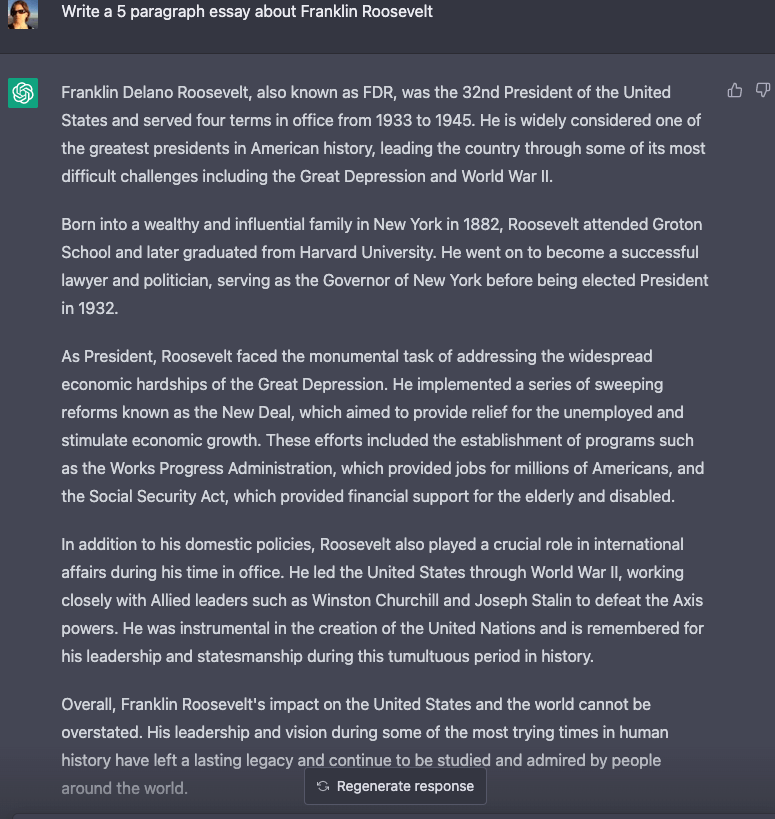
Days before the holiday break, my news and listserv feeds blew up with headlines about a new service from OpenAI called ChatGPT. If you are unfamiliar with OpenAI this New York Time article gives you some background information about ChatGPT. For those without access to the NY Times, OpenAI is the creation of the San Francisco AI company that created GPT-3 and DALL-E 2, an image generator. (Yes, you say it like WALL-E, from Pixar Animations) OpenAI’s major funder is Microsoft. While DALL-E 2 can generate images from simple text prompts, ChatGPT can generate text. Not just simple text but entire essays. Below is an example of a prompt that I entered.

Some schools have already generated websites to guide their faculty in responses to ChatGTP. For example,
Montclair State University’s Office for Faculty Excellence provides examples of the content that ChatGTP can generate (jokes, computer code, essays, concept explanation) and suggestions about how to talk to students about using this tool (or other AI bots) in regards to academic honesty. The site also provides suggestions for alternative assignment designs to thwart the use of ChatGTP altogether.
Other conversations have centered around the plagiarism Bots available to check for the use of ChatGTP. These include
Huggingface and
GPTZero, created by a Princeton grad student not long after ChatGTP was released. Some have discussed student privacy rights since users need to sign up for an account to use the bot. What kind of data is collected and how will it be used? Can a user control what data is collected? Could the data be sold for other uses like targeted advertising or fake news?
Todd Zakrajsek, our August Conference keynote, in reply to the thread on the POD Network listserv decided to do some experimentation with it by asking, “Write a paper about Todd Zakrajsek.” He learned that the bot was certain that he works at the University of Colorado – Denver as the Assistant Dean of Student Affairs, attended the University of Northern Illinois, has a B.S. in Physical Education, and worked in K-12 before moving to higher education. This is, of course, all FALSE so apparently, there are two Todd Zakrajsek’s out there for bot-fodder. Although he did end with “If anyone at the University of Colorado – Denver could tell me where my office is located, I will be there straight away:)”
The ChatGTP chat-prompt page has disclaimers about results producing false information, biased content, harmful instructions, and the bot possessing a “limited knowledge of world events after 2021.” Will students read the limitations and take them seriously? Or ignore it and chat away? There are already other tools like
Chegg and
SparkNotes where students can get entire papers and assignments from previous semesters.
Hmmm, this sounds like a topic for a Friday Forum discussion.



